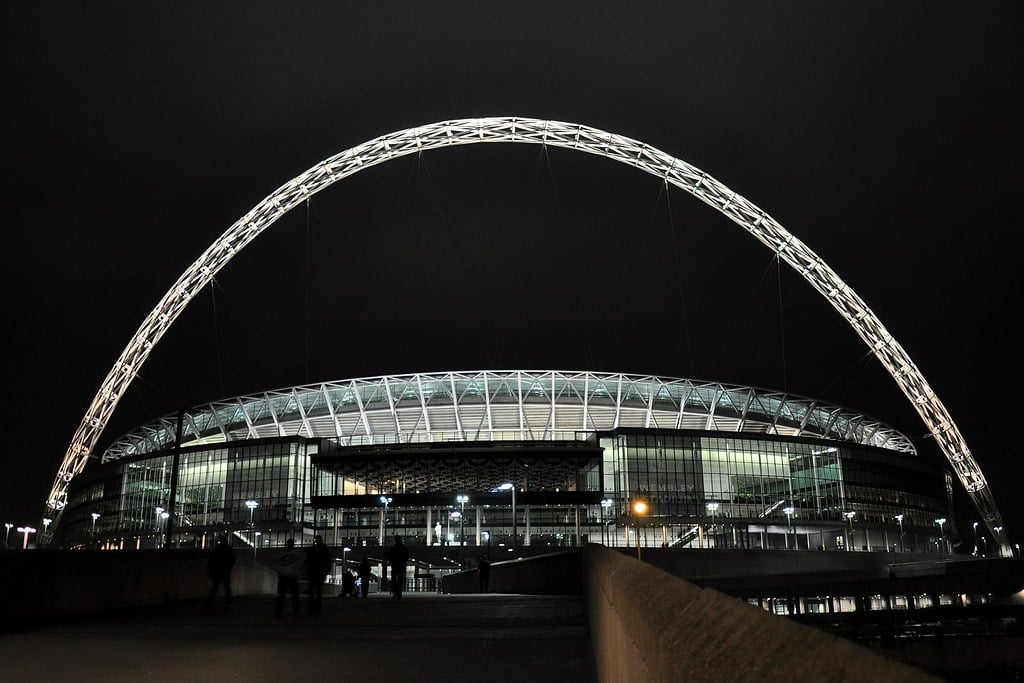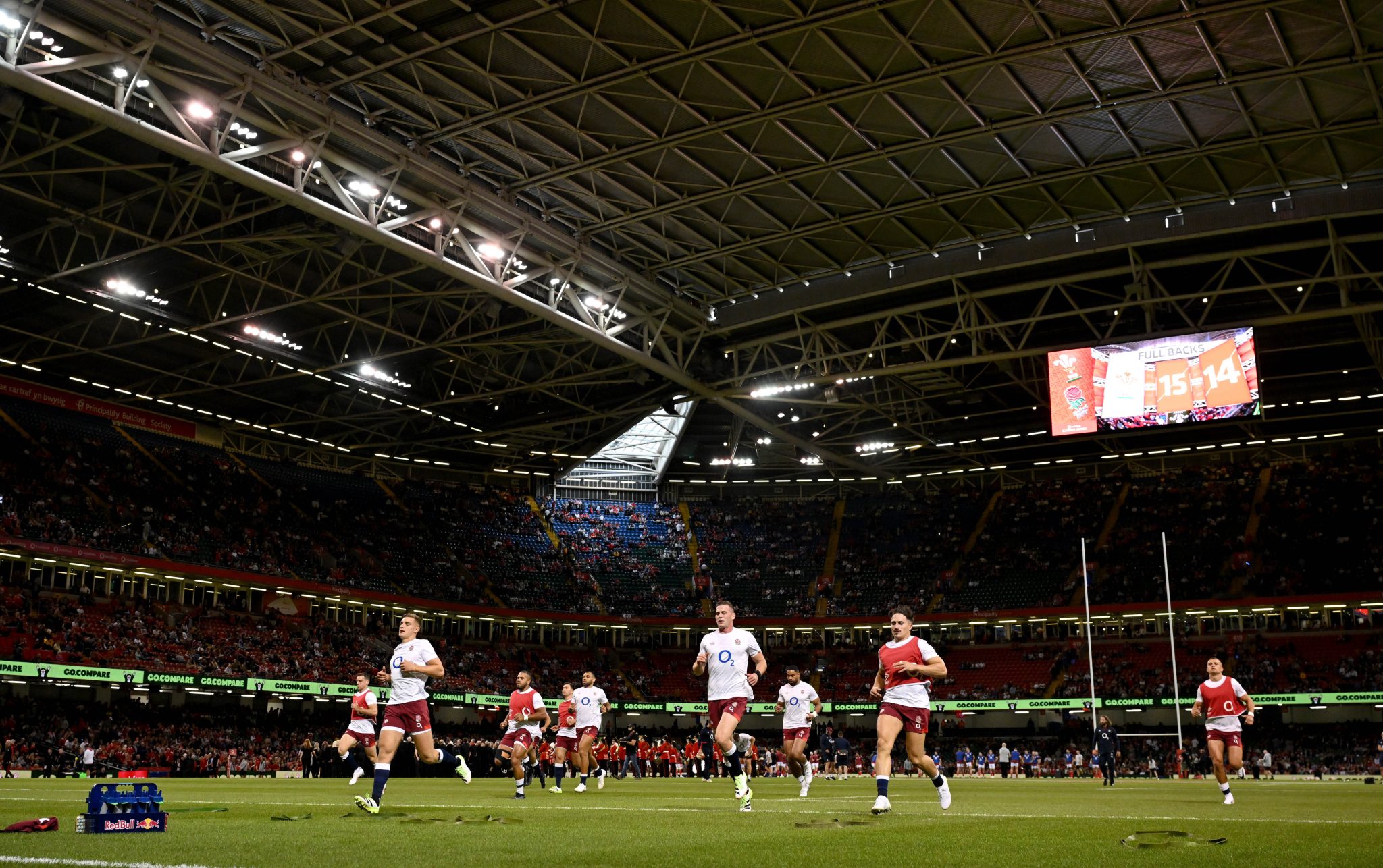England will co-host the 2028 European Championship alongside Ireland, Wales, and Scotland, ending a long wait to host a major tournament.
With several stadiums already identified, this post sheds light on what awaits fans in Euro 2028, such as match venues and more.
New England head coach Thomas Tuchel is expected to hit the ground running as soon as he takes over from Lee Carsley.
As co-host of the Euro 2028, England will enjoy a broader support base in the UK. However, the big question is, will it help end the endless search for a major European trophy?
Euro 2028 host stadiums – 10 venues across nine cities

Apart from Casement Park which is now ruled out of hosting the 2028 European Championship will be held in the following cities:
- Wembley Stadium – London
- National Stadium of Wales – Cardiff (Principality Stadium)
- Tottenham Hotspur Stadium – London
- City of Manchester Stadium – Manchester (Etihad Stadium)
- Everton Stadium – Liverpool
- St James' Park – Newcastle
- Villa Park – Birmingham
- Hampden Park – Glasgow
- Dublin Arena – Dublin (Aviva Stadium)
Euro 2028 stadiums map
There are notable absentees from that list: Manchester United's iconic Old Trafford stadium, Liverpool's historic Anfield ground and West Ham's former Olympic-hosting London Stadium.
Two selected stadiums that have not yet been built are Everton's new stadium, Bramley-Moore Dock, although that is nearing completion and Belfast's Casement Park.
Each capital city in the UK and Ireland will have a host stadium. London has two in Wembley and the Tottenham Hotspur Stadium, Belfast has Casement Park, Glasgow's choice is Hampden Park and Dublin's the Aviva Stadium. Cardiff's fantastic Principality Stadium is Wales' only inclusion.
Wembley Euro 2028
Yet again, Wembley Stadium will become the centre of attention when the focus turns to Euro 2028 in the UK and the Republic of Ireland. The final match of the event is likely to take place at the UK's largest stadium. It's worth mentioning that Wembley previously hosted the UEFA Euro 1996 final between the Czech Republic and Germany.
National Stadium of Wales
Also known as Principality Stadium, the Cardiff venue is another selected venue for hosting the Euro 2028 matches. Like Wembley, Principality Stadium is no stranger to big events, including football and music concerts.
The football stadium has a capacity of 74,434, making it one of the biggest venues in the upcoming European Championship.
Tottenham Hotspur Stadium
It will be the first time Tottenham Hotspur Stadium hosts European Championship matches. The London-based stadium, completed in 2019, prioritizes sustainability.
Tottenham Hotspur Stadium boasts zero emissions and 100% renewable energy use. With a capacity of 62.302 seats, it will be one of the largest venues during the European Championship in 2028.
City of Manchester Stadium
As one of the selected venues for the 2028 European Championship, Man City's Etihad Stadium will be known as the City of Manchester Stadium. The venue boasts a capacity of 55,097.
Everton Stadium
With the Toffees now preparing to move to their new stadium, some of the Euro 2028 matches will likely be held there. The Everton Stadium has a seating capacity of 52,888 and has cost the club at least £500 million. While it may not be among the largest stadiums in England hosting the 2028 event, it is a noteworthy new addition.
St. James' Park
St. James' Park, home ground to Newcastle United, is among the 2028 European Championship venues. It isn't just a football stadium and an attraction site visited by thousands of travellers every year. The venue has a capacity of 54,405 seats and is expected to host several Euro 2028 matches.
In 1996, St. James' Park in Newcastle upon Tyne hosted three European Championship matches.
Villa Park
Villa Park, located in Birmingham, England, is one of the Euro 2028 stadiums with a fairly impressive seating capacity. The home ground of the EPL side, Aston Villa, currently boasts a capacity of 42,640. However, with an expansion plan in the pipeline, that is expected to increase.
The club recently released information regarding Villa Park expansion and the goal is to increase the capacity to at least 50,000. It is not clear when the redevelopment will start but with four years to go before the next Euros, we could have a new-looking venue at the onset of the tournament.
Dublin Arena
Popularly known as Aviva Stadium, the Dublin venue is ready for the 2028 European Championship. It is the second-largest stadium in Ireland, boasting a capacity of 51,700 seats.
The Dublin Arena is no stranger to big tournaments, with the most recent one being the Europa League final between Atalanta and Bayer Leverkusen on 22 May 2024.
Casement Park redevelopment ahead of the Euro 2028 halted
There are concerns that the Casement Park redevelopment may not be finished in time to host Euro 2028 matches. As a result, the UK government has withdrawn funding for the project, citing time constraints. With that, Casement Park is no longer one of the Euro 2028 stadiums as originally expected. It is a blow to Northern Ireland as a co-host of the European Championship.
Moreover, there have been concerns regarding the availability of funding, given that the project costs for the redevelopment have soared beyond £400 million. The property owners had earlier agreed to contribute only £15 million towards the project.
Chief Executive John McGrillen of Northern Ireland Tourism expressed disappointment with the latest development, as the country had expected at least £100 or more to be injected into the economy.
The current Casement Park has been unused for a full decade.
Read the full GAA statement on Northern Ireland missing the opportunity to host the European Championship in 2028.
Ulster GAA statement on Casement Park:
Read here ? https://t.co/RKewvXrNP6 pic.twitter.com/De4gHGnB7m
— Casement Park (@CasementPark) September 14, 2024
Will any other Euro 2028 stadiums be built or renovated?
Yes.
First of all, it's worth noting that of the 10, the Tottenham Hotspur Stadium is the only new build, opening in 2019, along with the Everton Stadium.
The Etihad Stadium, meanwhile, is set to undergo renovations this year, increasing its capacity to 61,958. In anticipation of this tournament, Villa Park in Birmingham's capacity is expected to rise to 52,190.
Hampden Park Euro 2028 stadium renovations
Glasgow's Hampden Park is the other major story. Scotland's national stadium opened in October 1903 with a capacity well over 100,000. It reached a peak capacity of 150,000 after 1937, and the international match between Scotland and England in that year drew a European record attendance of 149,415.
By 1977, Hampden Park's size was reduced to 81,000, and the stadium had since been fully renovated. However, there has been no significant work on it since 1999, with some upgrades in 2014 in preparation for hosting the Commonwealth Games.
In 2021, Hampden Park successfully hosted games in the delayed Euro 2020 tournament. There were no renovations before that, but there will be now.
The ground's capacity is set to increase to around 65,000 seats, with the stands being shifted to increase the room. Standing sections will likely be implemented after the relevant law changes in 2022. Hampden Park is also set to feature a retractable roof that is translucent in colour.
Like the Allianz Arena in Germany, we could see an incredible LED-clad ground illuminated in the colours of the home team every matchday.
One other interesting suggested feature is a 360-degree screen. Now, this won't always be in place, but it will be used only when the stadium's lower tier is full. If the upper tier is closed, a movable curtain could be pulled across the upper rows for smaller events to create a 360-degree screen. It could be pretty special for indoor sporting events or music concerts.
So, will it happen? More news needs to come on this one, but Hampden Park will be renovated in some way before this tournament, and it could be the most exciting change of all.
Old Trafford will not host Euro 2028 matches

Even though Old Trafford hosted 1996 European Championship matches, England's largest club football ground will not be one of the Euro 2028 stadiums. The one Manchester venue chosen is that of Manchester United's rivals, City's Etihad Stadium, which will be known in the bid as the City of Manchester Stadium.
The City of Manchester Stadium was initially built for the Commonwealth Games, with City becoming tenants later as they left Maine Road. Several renovations have been done since, with another on the cards before Euro 2028. Old Trafford, meanwhile, has undergone no major transformation since the mid-2000s, leaving fans furious at the club's ownership.
After it was announced that Old Trafford would not be part of the UK and Ireland's bid for Euro 2028, United told reporters that they had “mutually agreed to withdraw from the shortlist” because they couldn't provide “the necessary certainty around the availability of Old Trafford due to the stadium's redevelopment.”
In essence, the ground might finally undergo renovations around Euro 2028. Still, this is a fairly solid indictment of the lack of progress in M16.
Why wasn't Anfield selected?
In short, its pitch is too small and does not meet the 105 x 68 metres required by UEFA. Instead, Anfield's pitch is 101 metres long, meaning it cannot host occasions such as the Europa League and Champions League finals and matches at Euro 2028.
Stadiums such as Chelsea's Stamford Bridge were also omitted from the selection pool for the same reason.
Where will the opening game of the Euro 2028 be held?
It's reported that Cardiff's Principality Stadium will be the host stadium for the opening game of Euro 2028.

Which other countries wanted to host?
Well, in the end, the UK and Ireland bid was unopposed. However, in addition to Turkey, there was plenty of interest from other countries across the continent.
In 2016, the Danish Football Association began preparing a joint bid with its fellow Scandinavian associations, namely Finland, Norway, and Sweden. Related events would also have been held in the Faroe Islands and Iceland. This bid never came to fruition.
In September 2018, Spain and Portugal announced their intention to bid together for Euro 2028 or the 2030 World Cup. They later focused their efforts on the latter and now look set to host the major event as part of a triple-bid with Morocco, who will also host Afcon 2025.
Italy considered bidding for Euro 2028 but has instead focused on Euro 2032 to allow themselves more time to improve their facilities and infrastructure.
Romania, Greece, Bulgaria, and Serbia were also considering another joint bid. This was announced in February 2019, but this, too, never came to fruition.
Russia also tried to bid for both Euro 2028 and Euro 2032, but UEFA has declared their bids ineligible because of the country's illegal invasion of Ukraine.
Which stadium will host the Euro 2028 final?
Wembley will likely host the 2028 Euro final match, although this remains speculative. As the largest stadium in the UK and undoubtedly one of the biggest stadiums in the world, the venue is expected to host other matches during the tournament.
Wembley hosted the 1996 and 2021 European finals. Most recently, the UK's biggest venue hosted the UEFA Champions League finals between Dortmund and Real Madrid.
The 1996 Euro final match at Wembley was won by Germany which defeated the Czech Republic 2-1. It was the first major title that Germany won as a unified nation, noting that before the Unification, both West and East Germany had won European Championship titles.
In July 2021, another European Championship final was staged at the iconic Wembley Stadium. The clash saw Italy take on England in a game that ended 1-1 in regular time. Italy sailed through to a 3-2 victory in penalties to bag the trophy.
What is the cost of hosting the European Championship?
There is no specific cost for hosting the European Championship, but we know it runs into millions of dollars. For example, the cost of hosting Euro 2024 in Germany was budgeted at €645.5 million. In 2020, the cost was a little higher, approximated €703.9 million.
Most importantly, the cost of hosting the European Championship since 2004 has never been below €180 million.
Given that analysts project that at least £2.4 billion will be injected into the economies of the countries that will host the 2028 European Championship, preparations costs ahead of the tournament are equally expected to be significantly higher.
